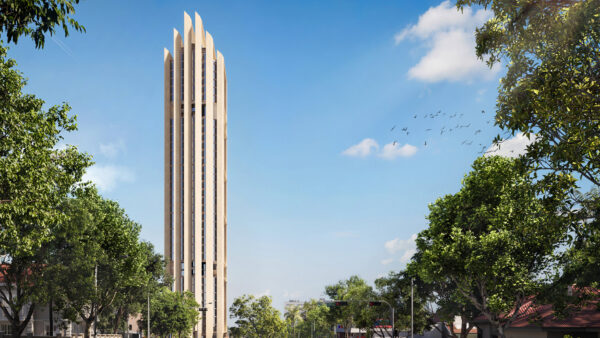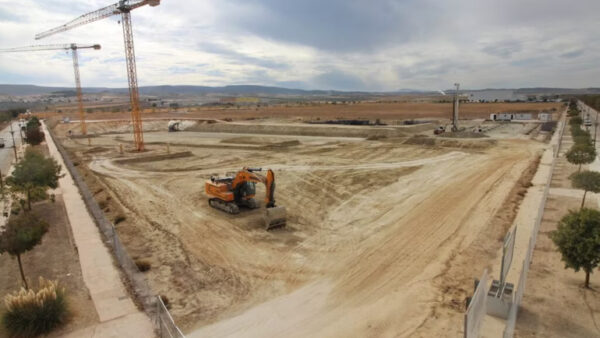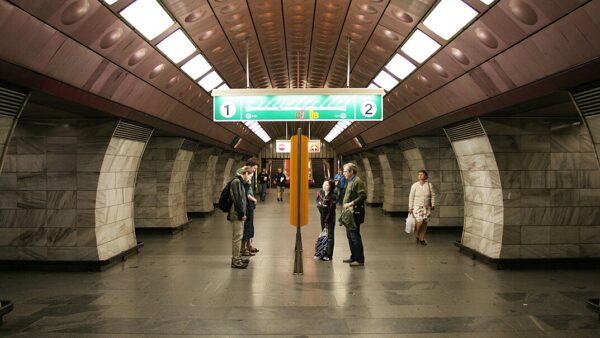In an admission that its own industry lacks capacity to solve its housing crisis, Israel has given the green light for five Chinese construction giants, and one from Portugal, to spend the next five years building homes on Israeli soil.
The controversial move comes as the government has failed to get enough new homes built after widespread protests over housing shortages and other issues erupted across Israel in 2011 (pictured).
The decision to allow six foreign building companies to work in Israel will endanger small and medium-sized companies building homes– Roni Brik, National Builders Association
The companies, selected from 50 applicants worldwide who responded to a government tender last March, are needed to plug gaps in Israel’s manpower and advanced building technology, the country’s Housing and Construction Ministry said.
Portugal’s Mota Engil joins Beijing Construction Engineering Group (BCEG) and four other big Chinese concerns in a bid to get hundreds of thousands of square metres built in a short time.
Each company can bring up to 1,000 of its own workers in concrete and masonry trades, skills lacking in Israel, and will have to show they have each started work on at least 100,000 square meters of construction by the second year, 150,000 sq m the third year and 250,000 in the fourth.
“These are companies that know how to work 24 hours a day, seven days a week without strikes and holidays,” Eshel Armoni, the Housing Ministry director general, told newspaper Haaretz.
“In Israel, of course, this doesn’t happen because of our labour laws, but even so we’ll be seeing a faster pace of work in a lot of places.”
He added: “By bringing together technology and experience, these workers will shorten construction times, which is a main goal of this undertaking.”
Faced with a high birth rate and sluggish productivity in its own industry, the Israeli government has had difficulty upping the pace of home construction, causing home prices to soar.
The firms selected all had to have an average annual turnover of at least $300m and previous experience of building big residential schemes.
The winners were:
- Beijing Construction Engineering Group: A state-owned-owned company set up in 1953 with revenues exceeding $2bn, the group is currently investing in and helping to build Manchester Airport City in the UK.
- First Construction Jiangsu Corporation: Founded in 1949, this state-owned management company based in Nanjing has a turnover of $1.5bn, and has built high-rise residential buildings in China and Singapore.
- Everbright International Construction Engineering Corporation: This Beijing-based company has extensive experience in residential construction in China, Malaysia and Saudi Arabia. Turnover exceeds $1bn.
- Jiangsu NanTong No. 2 Construction Engineering Group: From Nantong, Jiangsu province, the firm is engaged in residential and infrastructure in China, Singapore and Canada. Founded in 1985, the company’s revenues in the past three years exceeds $4bn.
- China Haushi Enterprise: Headquartered in Guangdong province and established in 1982, the company has experience in residential construction in China and Hong Kong. In recent years the company has established dozens of residential housing projects totalling over 2 million square meters.
- Mota Engil Engenharie E Construction: The smallest by revenue, and founded in Portugal in 2006, Mota Engil has built residential projects in the Czech Republic, Poland, and Peru. Revenues in the last three years average more than $400m.
The extraordinary move is controversial, with a representative of Israel’s own construction industry criticising the government.
“The decision to allow six foreign building companies to work in Israel will endanger small and medium-sized companies building homes,” Roni Brik, president of the National Builders Association, told Haaretz. “The decision is no solution to the serious shortage of professional workers in the building sector.”
Image: 70,000 people attended social justice protests at Rabin Square in Tel Aviv on 29 October 2011 (Wikimedia Commons)
Further Reading:






